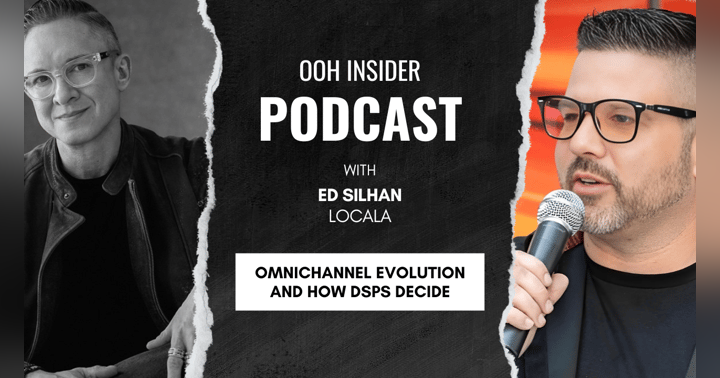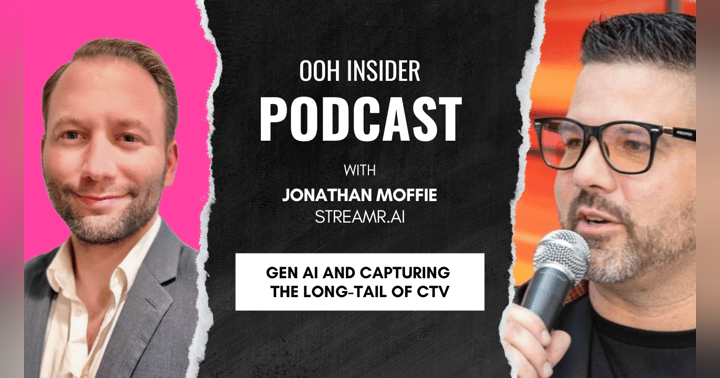Why In-Store Retail Media is a Game-Changer

Retail media is experiencing rapid growth and is expected to become one of the most dominant channels in the advertising industry. Projections indicate substantial increases in both retail media spending and its share of overall ad budgets over the next few years. Here's an overview of the growth trajectory:
Key Growth Projections:
- Overall Growth Rate: Retail media is forecasted to grow by 17.5% in 2024, becoming one of the fastest-growing sectors in the advertising space.
- Revenue Growth: The global retail media market is estimated to reach $160 billion by 2027, nearly doubling from its 2022 figure of approximately $88 billion. This growth reflects increased retailer investment in monetizing their digital properties and offline networks.
- U.S. Market Trends: In the U.S., retail media ad spending is projected to reach $55.34 billion by 2024, making up a growing share of total digital ad spend. Brands are increasingly directing ad budgets to retail media networks, given their ability to deliver highly targeted ads near the point of purchase.
- Driving Factors:
- Shift to Omnichannel: As consumer behavior increasingly blends online and offline shopping, retail media networks offer an effective way to reach shoppers both digitally and in-store.
- First-Party Data: Retail media benefits from the wealth of first-party data that retailers collect, enabling brands to serve personalized, relevant ads.
- Integration with Programmatic: Retailers are integrating more programmatic and dynamic advertising capabilities, enhancing their appeal to advertisers.
Charts are a lot of fun to look at and we typically look at them for forward projections, but to understand where we're going we have to understand where we came from:

Want to get in on the conversation about the shift to omnichannel and how brands are using 1PD with programmatic integrations to active in-store audiences? Check out this episode with Dan Hight and Paul Brenner here: https://www.theoohinsider.com/from-data-to-dollars-a-framework-for-measuring-in-store-retail-media-with-dan-hight-placerai-and/
Why In-Store Retail Media is a Game-Changer
- Proximity to Purchase: The most significant advantage of in-store media is its proximity to the point of sale. Ads displayed on screens, kiosks, and point-of-sale terminals engage customers during moments of high purchase intent, increasing the likelihood of conversion.
- Enhanced Targeting: Today’s in-store retail media networks leverage real-time data and behavioral insights, allowing for highly targeted campaigns. Brands can adjust messaging based on shopper profiles, time of day, and location. This ensures that the right message reaches the right consumer, creating a personalized shopping experience.
- Holistic Brand Experience: As consumers move from browsing online to shopping in-store, retail media networks offer an integrated approach to maintaining brand visibility across channels. This cross-platform consistency reinforces brand recognition and trust, which can significantly influence purchase decisions.
Curious how the path to purchase and creating holistic brand experiences can work together in a targeted way? Check out this conversation with Rae Marie Guimond here: https://www.theoohinsider.com/rae-pricespider/
Key Benefits of In-Store Retail Media
- Increased Purchase Intent: Ads placed near or at the point of purchase have a higher conversion rate, as they reach consumers when they are actively deciding on what to buy.
- Data-Driven Decisions: In-store media platforms provide rich analytics, allowing brands to optimize their campaigns in real-time.
- Omnichannel Synergy: Combining in-store media with digital campaigns amplifies the overall impact, creating a seamless customer journey from online browsing to in-person purchasing.

Potential Pitfalls to Watch For
- Over-Saturation: As more brands invest in in-store advertising, there is a risk of over-saturation, which can overwhelm shoppers and reduce the effectiveness of individual messages. Ensuring that campaigns are well-timed and relevant is essential to maintain consumer engagement.
- Measurement Challenges: While in-store media is highly effective, measuring its impact can sometimes be tricky. Brands need to establish clear KPIs and use available technologies, such as QR codes or loyalty apps, to track conversions accurately.
- Creative Constraints: In-store media screens often have limited time and space for messages, which can make it challenging to convey complex ideas. Simplicity and clarity are key to capturing attention in these fast-paced environments.
Key Takeaways for Success
- Leverage Real-Time Data: Use behavioral and transactional data to customize your in-store campaigns in real-time, ensuring relevance and maximizing conversion potential.
- Integrate with Digital: Amplify your in-store media efforts by integrating them with your broader digital marketing strategies, ensuring that consumers have a cohesive experience across touchpoints.
- Test and Optimize: Regularly analyze the performance of your campaigns and adjust based on consumer response to get the best return on investment.
Ready for the publisher's masterclass on building in-store retail media networks? Check out this conversation with Michael Pollack here: https://www.theoohinsider.com/mike-polllack/


